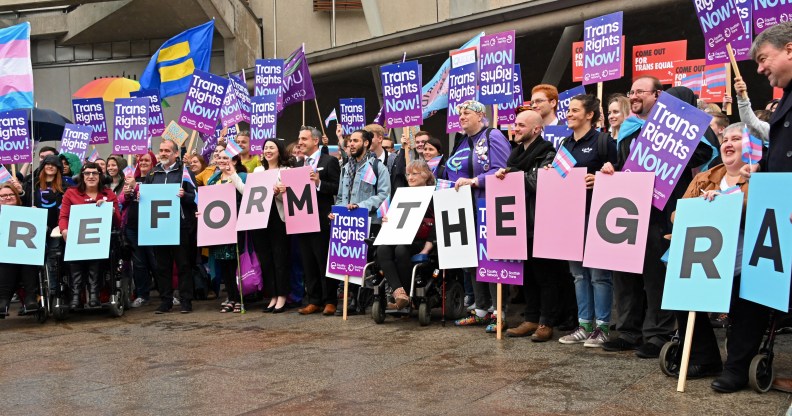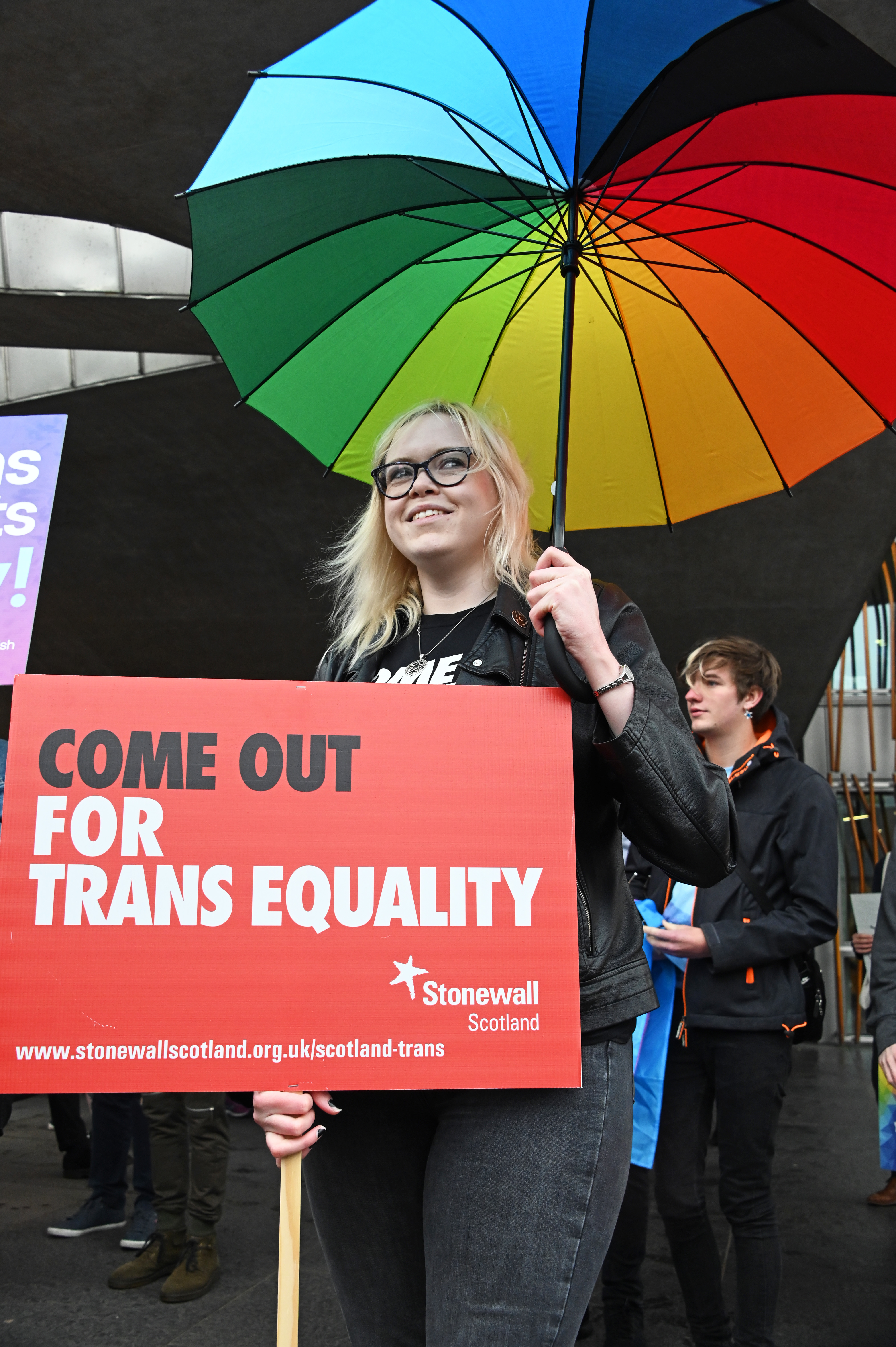Sexual health of trans people at risk due to self-ID delay, charities warn

Protesters demonstrate outside the Scottish Parliament for reform of the Gender Recognition Act. (Ken Jack/Getty Images)
Sexual health charities wrote a joint letter to the Scottish government yesterday to say that delays in Gender Recognition Act (GRA) reform, and therefore delays in allowing the self-identification of gender without medical proof, will put the sexual health of trans and non-binary people at risk.
The first consultation on gender recognition was open from 9 November 2017 to 1 March 2018, receiving 15,697 responses.
Scottish parliament announced last month that instead of immediately reforming the GRA, a draft bill containing proposed reforms will be published for another round of consultation later this year.
This draft bill does not extend legal gender recognition to non-binary people,
The letter was jointly written by Waverley Care, Scottish Drugs Forum, the Terrence Higgins Trust, HIV Scotland and LGBT Health and Wellbeing and was addressed to Shirley-Anne Somerville, the social security and older people secretary.
They wrote: “While the proposed system is not in place, trans and non-binary people continue to be subjected to intrusive and harmful medical requirements to gain basic recognition of their gender identity.
“We urge the Scottish government to consider the ongoing harm caused to people who are gender diverse in engaging with the current system.
“Moreover, we are concerned that a second consultation phase invites continued societal discourse on the legitimacy of trans people’s experiences and adds another layer of harm to their health and wellbeing.”
The charities said that while trans and non-binary people fear being misgendered, they are less likely to access health services.

A protester demonstrates outside the Scottish Parliament for reform of the Gender Recognition Act, in an event organised by the Scottish Trans Alliance, on June 12, 2019 in Edinburgh, Scotland. (Ken Jack/Getty Images)
The charities said reducing marginalisation would lead to better access to sexual health services for trans and non-binary people
“The trans people we work with tell us that fear of misgendering and a lack of compassionate support prevents them from accessing basic sexual health services, including contraception and STI prevention,” the letter read.
“GRA reform is a key step in addressing the marginalisation of trans and non-binary communities, by allowing people to more easily gain legal recognition of their gender identity.
“By reducing the marginalisation trans and non-binary people face, GRA reform would enable better access to sexual health services and assist our organisations’ work to reduce HIV transmissions.”
The letter ended by urging the Scottish government “to be robust in challenging misinformation and scaremongering about trans and non-binary people.”
Polling released earlier this month, carried out for PinkNews by YouGov, found that 56 percent of the UK population are in favour of trans people being able to self-identify their gender.

